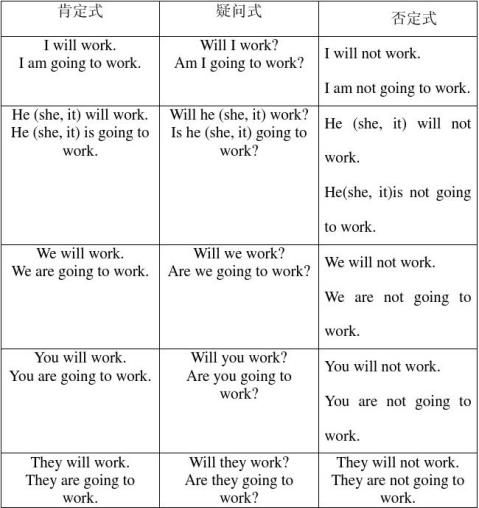How to learn English
Just as someone puts it: Interest is the best teacher. That means, to learn something well, the most important thing is to develope a habit of learning it.
Well, are you interested in English? How do you make youself interested in English learning?
To be honoest, when I learned English for the first time, I think it was very difficulf. I always asked my parents, why do we learn English? But my parents answered: Because test… oh, it’s so terrible…. I always think, why should I learn a foreign language? How ridiculous it is! So, unluckly, In my primary school, I had a hard time to learn English.
My only interest to learn English is an English song by Micheal Jakson named: Beat It. During a long time, my old brother listened and sang this songs all day in the house which influenced me, I followed the rhythm and sang it all day. I repeated the words of the song: Beat it, beat it,just beat it… It is a rock song with so much passion. In fact, I don’t know what I sung, but I felt it was very funny. From then on, I formed a habit of hearing English songs. The more English songs you hear, the more interested I am in English. I began to remember the beautiful words of songs, and dream one day I can sing it to a lovely girl. Some beautiful words I still remember now, such as: I will never break your heart; take me to you heart, take me to you soul, give me your hand before I’m old; you are beautiful, you are beautiful ,it’s true, I saw your face in a crowded place,
and I don’t know what to do…. And so on…..
Little by little, I had an active attitude towards to English. I began to practice my pronunciation, I began to watch some English movies and remembered the nice parts in the movies. Here is a part of Titanic which I love most: I figure life is a gift and I don’t intend on wasting it; You never know what hand you’re going to get dealt next. You learn to take life as it comes at you. How beautiful words it is.
So, according to what I had said, I have 3 points to sum up.
1. Passion is the key. In other words, you need develop a habit of
learning English.
2. You need speak it out. Many people hold that learning English
is just for test but never use it, mute English is not what we
want.
3. You need try to remember. Meanwhile, there are a lot of
difficult words, for some difficult words, you can learn them
once and once again, Just as an old saying said: Practice makes
perfect.
Today we learn English is hard, tomorrow is harder, but the day
after tomorrow is sunshine. Most people died on the tomorrow evening and can’t see the sun light of the day after tomorrow.
Sun light or death, what’s your choice?
10级南大会本4班耿越
第二篇:English study_20xx年中考英语动词复习
20xx年中考英语动词复习
Brainstorm:你能一眼看出句子中动词的时态吗?你能用正确地使用动词时态吗?你能用动词的正确形态填空吗?
一. 情态动词
1. 情态动词的概念:情态动词是一种本身有一定的词义,表示说话人的情绪,态度或语气的动词,但不能单独作谓语, 只能和其他动词原形构成谓语。
2. 情态动词的特点:首先,情态动词后面要加动词原形;另外,情态动词的否定形式基本上都是直接加not。
3. 情态动词的分类:
A. 表示能的情态动词:
can:①能,可以=be able to。例如:I can draw. = I am able to draw.我能画画。
②可能,表示一种推测。例如:It can’t be Tom, he’s in Beijing now.那不可能是Tom,他现在在北京。
B. 表示请求、询问的情态动词:
1.may: ①请求,例如:May I help you?我能帮助你吗?
②表示推测,例如:The blue shirt may be Mike’s.那件蓝色的衬衫可能是Mike的。
2.would: 例如:Would you like a cup of tea?来杯咖啡怎么样?
3.could: 例如:Could you please give a pencil?能给我一只铅
笔吗?
4.shall:后接第一、三人称,will:后接第二人称。
C. 表示要求的情态动词
1. Should 应该。例如:We should keep the water clean. 我们应该保持水的洁净。
2. Need需要。这里要强调的是need有两种词性:情态动词和实意动词,当need是情态动词是它符合情态动词的一般规律,后面直接加动词原形,例如:You needn’t do your homework now.你不需要现在写作业。但当need作为实意动词出现时,后面就要跟动词的不定式(to do)了。例1:I don’t need to find my key now.我要找到我的钥匙。所以我们要注意分辨need的词性。关键在于它们的否定形式,但否定在need上时,证明need是情态动词,后面加动词原形,见例1;而不否定在need上时,证明need是普通的实意动词,自然后面加动词不定式,见例2。
3. Must
Must本身的含义是必须,但同时它也有推测的意思。我们来看看下面几个例句:
例1:I must do my homework. It’s eight o’clock. 例2:—Who’s singing next door?
—It must be Mike.
你能分辨出must的不同含义吗?
在例1中must是必须的意思,而例2中must是推测的意思。
还要注意的是由于must有两种含义,所以must的否定形式也有所不同,下面是它的三种否定形式: 例1:You mustn’t talk in class.
例2:—Must I do my homework now, mum?
—No, you needn’t.
例3:—That must be Mr. Smith.
—No, it can’t be him. He is in New York now.
在这三个例句中,我们看到了must的三种否定形式—mustn’t, needn’t, and can’t。mustn’t表示“禁止做某事”,needn’t表示“不需要做某事”而can’t是对推测的否定表示“不可能”。
4. Had better=’d better
表示“建议某人做某事”,“最好??”例如:You’d better eat less sweets, or you will be fatter.你最好少吃些糖,否则会更胖的。
5. Have to 不得不做某事
这是情态动词中为数不多会有时态变化的一个,其中的have可以根据句子的要求变成has或者had;另外它的否定也不是直接在后面加not,而是要在助动词上否定。
例如:I don’t have to do my homework now.现在我不用写作业。与must不同have to所表示的是“必须做主观上不愿做的事”。
二. 感官动词
这里我们将要介绍5个表示我们感官的动词,他们是look, sound, taste, smell, feel,与我们之前在形容词、副词篇讲授的有所不同,在它们的后面不能用副词,而要用形容词哦。例如:The ice cream tastes good.而不能说The ice cream tastes well.
三. 动词时态
在小学阶段,我们主要接触的是现在进行时,一般现在时,一般过去时和将来时这四种时态,下面的表格将帮你准确掌握这几个时态。
1. 现在进行时
A. 现在进行时的使用及时间标志
①表示说话时正在进行的动作
“now”即“现在”是现阶段现在进行时的明显标志,而词组“at the moment”有同样的意思,译为“此时此刻”,所以也是进行时的标志。但需要注意的是有的句子中虽然有now,但可能表示其它时态,需要同学们综合考虑。
当句中出现“Look!Listen!”这样的词时,表示让某人看或听正在发生的事情,所以也要用进行时。
另外,在there be句型中我们也要用进行时。例如:There is
a boy swimming in the river.
②表示目前阶段正在进行的动作.动作往往是从某一刻开始,持续到说话后的某一时间。例如:be busy doing和be always doing中就表示“一直忙于做某事”和“总是做某事”。 ③表示位置移动的词( go, come, leave)等,他们的进行时形式是(be going, be coming, be leaving) 表示即将发生或计划要做的事.如: Miss Li is leaving for London tomorrow.李小姐明天去伦敦。
B. 现在进行时的句式

2. 一般现在时
A. 一般现在时的使用及时间标志
①一般现在时表示一个习惯性、经常性的动作。
当文中出现every??,on Sundays时要用一般现在时;当有频度副词出现时,也要用一般现在时。频度副词包括:always, usually, often, sometimes, seldom, hardly, never。 ②自然规律也要用一般现在时来表达。例如:The sun rises in the east and sets in the west.太阳东升西落。 The earth moves around the sun.地球围着太阳转。
B. 一般现在时的句式

3. 一般过去时
A.
一般过去时的使用及时间标志
一般过去时表示过去某个特定时间发生,并且一下子就完成了的动作。常与表示过去的时间状语连用,如:yesterday, last ??, at that time(在那时), before,??ago等等。 B.
一般过去时的句式

4. 将来时
A. 一般将来时的使用和时间标志
表示将来发生的事实,常与tomorrow, soon, ??later, next ??, in+一段时间(一段时间后),等连用。 B. 一般将来时的句式
be going to 表示将来的形式 will 表示将来的形式

四. 动词形态
英语中一般来讲简单只能有一个谓语动词,但是句子中也可以有其他动词,所以我们把不充当谓语的动词统一称作“非谓语动词”。在小学阶段我们所接触到的非谓语动词主要有动词原形do,带to的不定式to do,动名词doing以及动词的过去分词done(这个词对大家可能很陌生,我们现在所学的过去分词很像动词的过去式,
但是事实上它们并不相同,在中学阶段我们会研究这个语法现象)。下面我们将看到在什么样的情况下我们会用到这些非谓语动词。
1. 动词原形
A. 在动词let, make, have的后面要用动词原形表示让某人做某事,例如:Let me open the door.让我为你把门关上。
B. 在词组why not的后面要用动词原形表示为什么不做某事,例如:Why not go out for a walk.为什么不出去走走呢?
C. 在see, hear的后面可以加动词原形表示看到、听到某人做某事的全过程(注意与see,hear sb. doing sth.的区分),例如:I heard her play the piano all the day.我听到她弹了一整天琴。
2. 动词不定式
A. 大部分的动词的后面都可以加动词不定式,例如:want to do sth., ask sb. to do sth.等。
B. 在词组would like=’d like的后面要用动词的不定式,例如:I’d like to see your new dress.我想要看看你的新裙子。
C. 在形容词的后面要加不定式,例如:I’m happy to see you again.很高兴再次见到你。但是要注意我们在时态中提及过的be busy/always doing是加动名词的
D. 在序数词的后面要加动词不定式,例如:Mr. Li is always the first one to come to school.李老师总是第一个来学校。
E. 在动词stop, finish, begin, start, remember, forget, keep, go on等的后面加动词不定式表示停止、开始、记得、忘记、坚持、继续做已经做或正在做的事。
3. 动名词
A. 在动词enjoy, go的后面要用动名词,例如:I really enjoy playing football.我真的很喜欢踢足球。My father always goes fishing on Sundays.我爸爸总是在周日去钓鱼。
B. 在介词或者介词短语后面用动名词,例如:feel like doing, be good at doing, do well in doing, be interested in doing, thank for doing, what about doing, with/without doing等。
C. 在No的祈使句中我们也要用动名词,例如:No littering! 不要乱扔垃圾!
D. See, hear后面加动名词表示看到、听到某人正在做某事,例如:I see a man fishing by the lake.我看到一个男人正在湖边钓鱼。(见动词原形C)
E. 在动词stop, finish, begin, start, remember, forget, keep, go on等的后面加动名词表示停止、开始、记得、忘记、坚持、继续去做还没做的事。(见动词不定式E)
4. 动词的过去分词
用动词的过去分词表示一种被动关系,这种用法在小学阶段并不常见,我们只需记住在课文中出现过的几个词,把它们看作形容词就可以了,它们是:named, called(被叫做、被称为??
的),made(由??制成的),例如:The boy named Nick is my brother.那个叫做Nick的男孩是我哥哥。Do you have a hat made of paper? 你有纸做的帽子吗?
